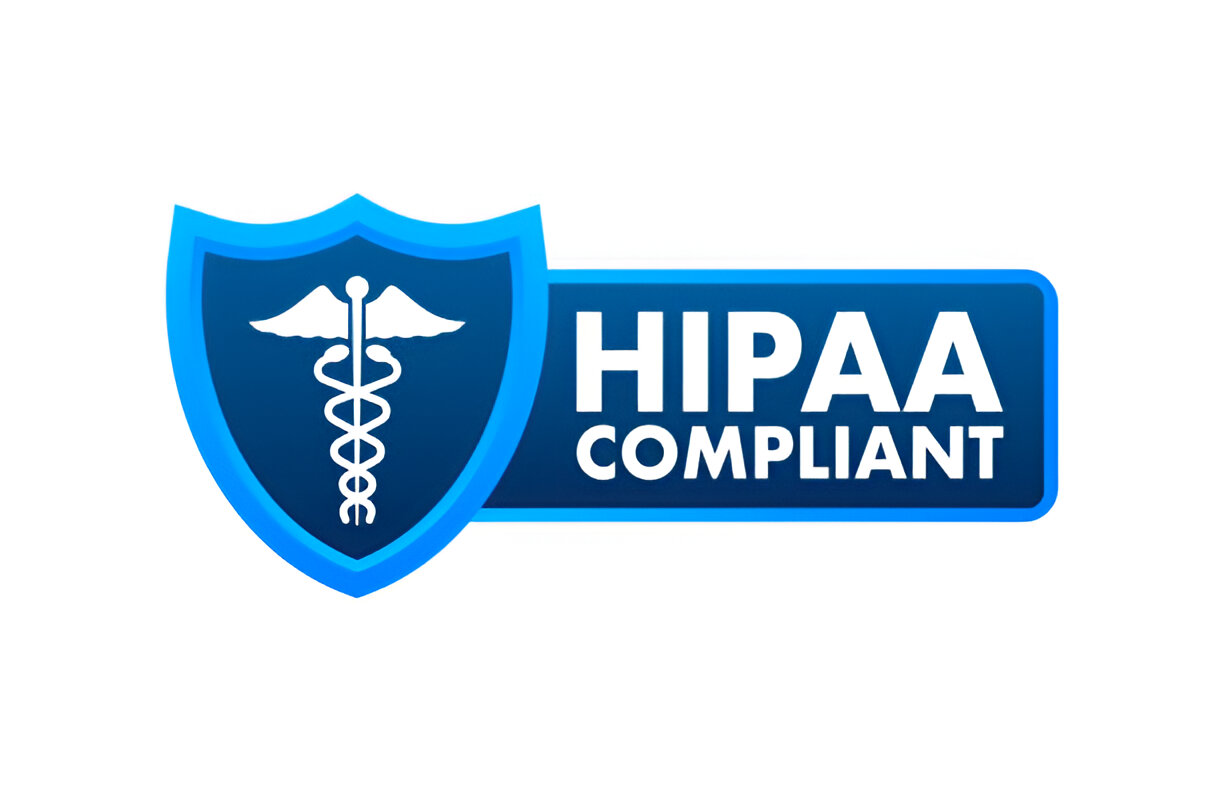The digital transformation of healthcare has made significant strides in recent years, with mental health care and therapy being no exception. For therapists, the adoption of digital solutions is more than a trend; it’s a necessary step to remain competitive, streamline practice management, and provide effective care to clients. In a landscape where mental health issues are rising, and remote therapy options are becoming more common, digital solutions offer a range of tools that can help therapists manage their workload, improve client engagement, and scale their practices.
In this comprehensive guide, we’ll explore various digital solutions for therapists, detailing how these tools can improve daily operations, enhance client care, and contribute to practice growth.
1. Practice Management Software
One of the most essential digital solutions for therapists is practice management software. These platforms are designed to automate and streamline the day-to-day administrative tasks that are critical to running a therapy practice.
Key Features:
- Appointment scheduling: Automates booking and rescheduling, reducing time spent on back-and-forth communication.
- Client records management: Stores client data securely in an organized manner, enabling easy access to important records.
- Billing and invoicing: Simplifies payment processing and invoicing for clients, helping therapists keep track of finances.
- Insurance claims: Some platforms integrate with insurance systems to automate claims submission and processing.
- HIPAA compliance: Ensures that therapists meet data protection standards required by law, particularly in the US.
Popular Platforms:
- SimplePractice: One of the most popular practice management platforms for therapists, offering tools for scheduling, billing, and telehealth.
- TheraNest: This software provides robust features for client record management, note-taking, and group therapy scheduling.
- Counsol: Offers personalized practice management with secure messaging, invoicing, and client portals.
By adopting practice management software, therapists can automate routine tasks, stay organized, and spend more time focusing on client care.
2. Electronic Health Records (EHR) Systems
Electronic Health Records (EHR) systems are a crucial part of digitizing a therapy practice. These systems allow therapists to maintain detailed, organized, and secure client records. With a shift toward digital healthcare, EHR systems streamline the documentation process and enable easy sharing of information between healthcare providers.
Key Benefits:
- Centralized records: All client health information, including therapy notes, treatment plans, and medical histories, is stored in one place.
- Easy access: EHR systems allow therapists to quickly retrieve client information, even during a session, ensuring more personalized care.
- Automated note-taking: Many EHR platforms come with built-in templates for therapy notes, progress reports, and assessments.
- Secure communication: Allows secure, HIPAA-compliant communication between therapists and clients or other healthcare providers.
Popular EHR Systems for Therapists:
- TherapyNotes: This EHR system offers note templates, billing integration, and appointment scheduling in one platform.
- Valant: Designed for behavioral health, Valant provides customizable notes, integrated billing, and detailed analytics.
- CarePaths: Offers tools for online therapy sessions, detailed client records, and customizable note-taking templates.
EHR systems are invaluable for therapists who need to manage client records efficiently while maintaining compliance with legal requirements.
3. Teletherapy Platforms
Teletherapy has seen significant growth, especially during the COVID-19 pandemic. Offering therapy sessions online has become a standard practice, and teletherapy platforms are designed to facilitate these virtual sessions securely and seamlessly.
Key Features of Teletherapy Platforms:
- Video conferencing: High-quality video sessions that mimic in-person therapy, with a focus on privacy and security.
- Screen sharing: Useful for therapists who want to share visual aids or exercises during sessions.
- Session recording: Allows for sessions to be recorded (with client consent) for future reference or supervision.
- Client portals: Provide a secure platform for clients to access resources, session notes, and schedules.
- Mobile accessibility: Many platforms offer apps that allow both therapists and clients to attend sessions from mobile devices.
Leading Teletherapy Platforms:
- Zoom for Healthcare: Provides HIPAA-compliant video conferencing, widely used in telehealth.
- Doxy.me: A simple, no-download teletherapy solution that is HIPAA compliant and offers secure video sessions.
- TheraPlatform: Combines teletherapy with practice management features like billing, scheduling, and note-taking.
Teletherapy platforms provide the flexibility that modern therapists need, especially for clients who are unable to attend in-person sessions due to location, mobility, or convenience.
4. Client Engagement Tools
Client engagement is essential for maintaining long-term relationships and ensuring positive therapy outcomes. Digital tools that enhance communication and engagement between therapists and clients are invaluable for keeping clients motivated and on track with their treatment plans.
Engagement Features:
- Secure messaging: Allows therapists and clients to communicate between sessions, fostering trust and continuity of care.
- Client portals: Provide clients with access to session summaries, homework, progress tracking, and self-help resources.
- Automated reminders: Send reminders for appointments, homework tasks, or check-ins to keep clients engaged and committed.
- Progress tracking: Tools that allow clients and therapists to track progress on specific goals over time.
Recommended Tools:
- Luminello: Provides a secure, HIPAA-compliant messaging system along with tools for sharing treatment plans and assessments.
- MyClientsPlus: Offers features for client engagement, including online forms, progress notes, and messaging.
- JaneApp: A versatile platform that combines practice management with client communication tools like reminders and secure video chat.
By integrating client engagement tools, therapists can build stronger therapeutic alliances and improve the overall effectiveness of treatment.
5. Mental Health Apps for Clients
Many therapists recommend mental health apps to clients as part of their treatment plans. These apps are designed to support clients in managing symptoms, tracking progress, and practicing self-care between sessions. Offering these apps as part of therapy enhances client autonomy and encourages continuous progress outside of scheduled appointments.
Popular Mental Health Apps:
- Headspace: A meditation and mindfulness app that helps clients manage stress, anxiety, and depression.
- Moodpath: This app allows clients to track their mood, providing valuable data for therapists to analyze during sessions.
- Talkspace: Provides access to licensed therapists via text, voice, and video messaging, giving clients extra support between appointments.
Benefits of Integrating Apps into Therapy:
- Self-monitoring: Clients can track their emotions, behaviors, and symptoms daily, giving therapists more data to work with.
- 24/7 access: Clients have access to resources and support at any time, helping them manage crises or stressful situations between sessions.
- Increased engagement: Clients who use apps to track their progress tend to be more engaged in their treatment, leading to better outcomes.
6. Marketing and Client Acquisition Tools
For therapists looking to grow their practices, digital marketing tools are essential for reaching new clients. These tools range from website builders and SEO software to social media management platforms and online directories.
Essential Marketing Tools:
- SEO tools: Platforms like Ahrefs, Moz, and SEMrush can help therapists optimize their websites for search engines, making it easier for potential clients to find them.
- Website builders: Tools like Squarespace or Wix allow therapists to create professional websites without the need for coding skills. These platforms often include features like appointment booking, blogs, and SEO integration.
- Social media management: Tools like Hootsuite and Buffer help therapists manage their social media presence, scheduling posts across multiple platforms and tracking engagement metrics.
- Google My Business: A free tool that ensures therapists appear in local search results, making it easier for people to find their services in a specific geographic area.
Client Acquisition Strategies:
- Content marketing: Writing blogs, creating videos, or hosting webinars can help therapists attract new clients by providing valuable mental health information and demonstrating expertise.
- Online directories: Listing services on mental health directories like Psychology Today or BetterHelp can drive traffic to your practice.
- Pay-per-click advertising (PPC): Running ads on platforms like Google Ads or Facebook can help attract clients searching for mental health services.
Using these marketing tools effectively allows therapists to expand their reach, attract more clients, and grow their practice.
7. Billing and Payment Processing Tools
For many therapists, managing billing and payments can be one of the most stressful parts of running a practice. Digital tools for billing and payment processing make it easier to handle client invoices, accept payments, and manage financial records.
Key Billing Features:
- Automatic invoicing: Sends clients invoices automatically after each session, reducing the risk of missed payments.
- Online payments: Accept credit card payments, ACH transfers, and even payment plans through secure platforms.
- Insurance claims: Some platforms allow therapists to submit and track insurance claims directly from the system, streamlining the process.
Popular Billing Tools:
- Square: Offers simple invoicing and payment processing for therapy practices of all sizes.
- SimplePractice: Includes billing, invoicing, and insurance claim submission features as part of its all-in-one practice management software.
- TheraNest: Provides tools for insurance claims, billing reports, and online payments through integrated payment processors.
Using these tools reduces the administrative burden of handling payments, allowing therapists to focus more on client care.
8. Online Course Platforms for Therapists
For therapists who want to expand their services beyond traditional therapy sessions, offering online courses is a great way to share knowledge and provide support to a wider audience. Creating online courses allows therapists to address common mental health issues, share therapeutic techniques, and offer resources for clients and the public.
Benefits of Online Course Platforms:
- Scalability: Once a course is created, it can reach countless individuals without the need for additional time commitments.
- Passive income: Therapists can generate revenue by selling courses, adding a new income stream to their practice.
- Wider reach: Online courses allow therapists to reach individuals who may not be able to attend in-person therapy, whether due to location, cost, or other barriers.
Popular Online Course Platforms:
- Teachable: A user-friendly platform where therapists can create and sell courses on mental health topics.
- Thinkific: Allows therapists to design, market, and sell their courses while offering engagement tools like quizzes and forums.
- Kajabi: A comprehensive platform that combines course creation, email marketing, and customer relationship management, making it ideal for therapists looking to build a larger online presence.
By using online course platforms, therapists can scale their knowledge-sharing efforts and reach a larger, more diverse audience.
9. Analytics and Reporting Tools for Therapists
Data-driven insights are becoming more critical in mental health practices. Analytics and reporting tools provide therapists with valuable data on client progress, treatment outcomes, and overall practice performance. With these insights, therapists can make informed decisions about treatment plans and practice improvements.
Key Features:
- Progress tracking: Monitor a client’s progress over time by collecting and analyzing data from therapy sessions, assessments, and self-reports.
- Client outcomes: Identify patterns in treatment effectiveness to optimize care for future clients.
- Practice performance: Track metrics such as client retention rates, average session frequency, and financial data to improve business operations.
Popular Analytics Tools:
- Valant: Provides robust reporting tools specifically designed for mental health practices, offering insights into treatment outcomes and operational efficiency.
- TherapyNotes: Includes built-in reporting features that allow therapists to monitor client progress and practice performance.
- Power Diary: Offers detailed reports on appointments, billing, and client outcomes to help therapists make informed decisions about their practice.
These tools help therapists move beyond subjective assessments and use hard data to enhance both client care and business growth.
10. HIPAA-Compliant Communication Tools
Ensuring the privacy and security of client information is a top priority for therapists. HIPAA-compliant communication tools are designed to safeguard sensitive data while enabling seamless communication between therapists and clients. Whether for secure messaging, file sharing, or telehealth sessions, these tools provide peace of mind for both parties.
Communication Features:
- Secure messaging: Allows therapists and clients to exchange messages without compromising data privacy.
- File sharing: Therapists can securely share session notes, assessments, and homework assignments with clients.
- Telehealth: Platforms that support HIPAA-compliant video conferencing ensure that online therapy sessions are secure and confidential.
Popular HIPAA-Compliant Tools:
- Signal: An encrypted messaging platform that allows therapists to communicate securely with clients.
- Spruce Health: A HIPAA-compliant communication platform that integrates secure messaging, telehealth, and appointment scheduling.
- Zoom for Healthcare: A version of Zoom that is HIPAA-compliant, ensuring privacy during teletherapy sessions.
These tools help therapists maintain client confidentiality and meet legal requirements for data protection.
11. Therapist Directories and Online Portfolios
Another essential digital solution for therapists is the use of online directories and portfolio platforms. These tools help therapists increase their visibility and attract new clients by making their services easily searchable online. Many clients begin their search for a therapist by browsing directories that specialize in mental health services.
Benefits of Online Directories:
- Increased visibility: Listing in popular directories helps clients find therapists based on location, specialty, and availability.
- Client reviews: Positive client testimonials and reviews can help build trust with potential clients.
- SEO benefits: Directories with high domain authority can improve a therapist’s online presence by boosting their search engine rankings.
Popular Directories:
- Psychology Today: One of the most widely used directories, offering listings for therapists, counselors, and other mental health professionals.
- BetterHelp: A platform for online therapy that connects clients with licensed therapists.
- GoodTherapy: A directory that promotes ethical therapy practices, offering a space for therapists to share their services and specializations.
By listing their services on these platforms, therapists can attract a wider audience and boost their practice’s visibility.
Conclusion
The digital age has opened up countless opportunities for therapists to enhance their practice, streamline operations, and reach more clients. From practice management software and EHR systems to teletherapy platforms and client engagement tools, digital solutions are revolutionizing the mental health industry. These tools not only make it easier for therapists to manage their day-to-day tasks but also improve the quality of care they can offer to clients.
By integrating digital tools into their practices, therapists can automate administrative work, offer remote therapy options, engage clients between sessions, and scale their services beyond the traditional therapy room. Whether it’s building a professional online presence, leveraging mental health apps, or using data-driven insights to improve client outcomes, the right digital solutions can help therapists thrive in an increasingly competitive and digital world.
As mental health needs continue to grow, so too does the importance of staying ahead of the curve with technology. By adopting these digital solutions, therapists can ensure that their practice is not only efficient and client-focused but also prepared for the future of mental health care.







